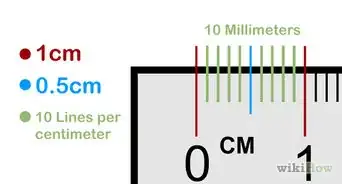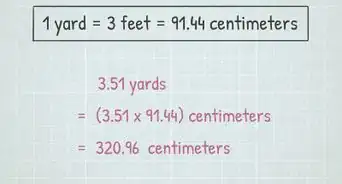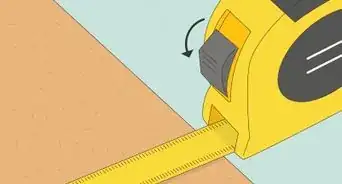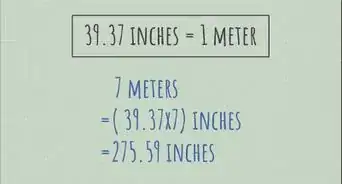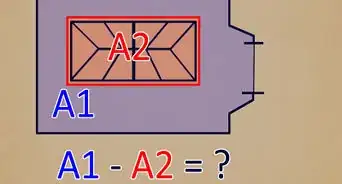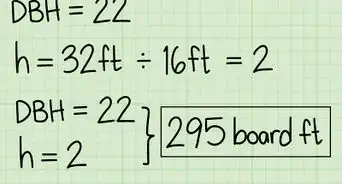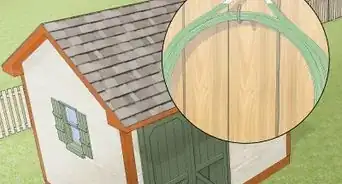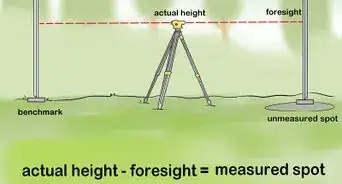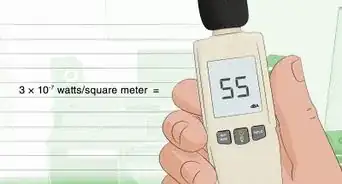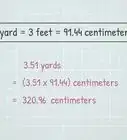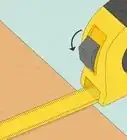This article was co-authored by James Mansfield. James Mansfield is a Construction and Design Specialist and the CEO of WestVillage General Contracting, a high-end and luxury design/build firm in New York City. James specializes in apartment, bathroom, and kitchen remodeling as well as fine cabinetry, lighting, paint, and wallpaper. James has developed a proprietary system of construction called the Luxury Build Method that hinges on a skilled team, respected partnerships, and clear, transparent communication. WestVillage GC has completed more than 500 commercial and residential projects in New York with designers such as David Scott Interiors and Fox Nahem, Kelly Behun. WestVillage GC is also a preferred contractor for Related buildings including Hudson Yards.
There are 7 references cited in this article, which can be found at the bottom of the page.
wikiHow marks an article as reader-approved once it receives enough positive feedback. In this case, 100% of readers who voted found the article helpful, earning it our reader-approved status.
This article has been viewed 130,234 times.
Determining whether your room is a perfect square will help aesthetically, but will also help during the construction phase of any project you choose to work on. Luckily, squaring a room is quite easy. All you need is some measuring tape and a pencil. If you're trying to square a room to lay down tile, see Method 3 to get started.
Steps
Measuring the Diagonal
-
1Measure the diagonals from all four corners of the room.[1] Take a tape measure and measure the distance from one corner to its diagonal, and then measure the diagonal between the remaining two corners. If you were to string lines across the corners you measured, they would form an "X".
-
2Know that if the measurements equal one another, your room is square. That's all there is to it! If your measurements do not equal one another, adjust the assembly until the diagonals equal one another.
Using the Pythagorean Theorem
-
1
-
2Measure 4 feet (1.2 m) from the adjacent wall on the same corner. Make a mark.[4]
-
3With a level or another straight object, span the distance between the two marks. If the straight line between the two marks measures 5 feet (1.5 m), that particular corner is a perfect 90° angle.[5]
- The math technique that you use to measure the corner is called the Pythagorean theorem. It states that the squares of the smaller sides of a right triangle are equal to the square of the longer side: a2 + b2 = c2 Only right triangles can be used in the Pythagorean theorem, so if the triangle's numbers don't add up, the corner of the triangle isn't 90°.
- You don't need to use 3-4-5 as your measurements. You can also double, triple, quadruple, etc. the measurements if your room is very large. Measuring 6-8-10 is the exact same as measuring 3-4-5.
-
4Repeat the procedure from the three other corners. If they are all 90° angles, and each wall is equidistant, you've got yourself a square room.[6]
Squaring a Room for Wood or Tile Flooring
This method is slightly different from the above methods. Instead of determining whether the room is perfectly square, this method teaches you how to determine the exact middle of a room if it were square. This is extremely important for laying down wood flooring or tile.
-
1Find the exact center points of all four walls in the room. Take a tape measure, measure out each wall, and then divide the total length of each wall in half. Make a mark at each wall along its center point.[7]
-
2Connect both pairs of marks on opposite walls with a chalk line. Take a chalk line and snap it over the middle of the room to connect two center points across from one another. Then go to the adjacent wall and snap another chalk line across the room. You should have a "+" sign that meets in the center of the room.[8] [9]
-
3Start laying your wood flooring or tile, using the "+" as your starting point. If you are laying wood flooring, make sure to leave a 1⁄2 inch (1.3 cm) buffer on all four walls, as the wood needs space to expand and contract. If you install the wood right up against all walls of a room, you'll likely get cracks in the wood when it doesn't have room to expand.[10]
- If you're laying tile, you don't have to leave any buffer space, as tile does not expand or contract.
Expert Q&A
-
QuestionHow do you check if a room is square?
 James MansfieldJames Mansfield is a Construction and Design Specialist and the CEO of WestVillage General Contracting, a high-end and luxury design/build firm in New York City. James specializes in apartment, bathroom, and kitchen remodeling as well as fine cabinetry, lighting, paint, and wallpaper. James has developed a proprietary system of construction called the Luxury Build Method that hinges on a skilled team, respected partnerships, and clear, transparent communication. WestVillage GC has completed more than 500 commercial and residential projects in New York with designers such as David Scott Interiors and Fox Nahem, Kelly Behun. WestVillage GC is also a preferred contractor for Related buildings including Hudson Yards.
James MansfieldJames Mansfield is a Construction and Design Specialist and the CEO of WestVillage General Contracting, a high-end and luxury design/build firm in New York City. James specializes in apartment, bathroom, and kitchen remodeling as well as fine cabinetry, lighting, paint, and wallpaper. James has developed a proprietary system of construction called the Luxury Build Method that hinges on a skilled team, respected partnerships, and clear, transparent communication. WestVillage GC has completed more than 500 commercial and residential projects in New York with designers such as David Scott Interiors and Fox Nahem, Kelly Behun. WestVillage GC is also a preferred contractor for Related buildings including Hudson Yards.
Construction & Design Specialist First of all, the room is not square. It's never square. Start by making a cross in the enter of the room, then measure out from the center in each direction until you reach the walls. That way, if the room isn't square, you'll know where and in which direction—it might be square in one corner, for instance, or it might not be square in any corners.
First of all, the room is not square. It's never square. Start by making a cross in the enter of the room, then measure out from the center in each direction until you reach the walls. That way, if the room isn't square, you'll know where and in which direction—it might be square in one corner, for instance, or it might not be square in any corners. -
QuestionHow does this work if opposite walls are different lengths?
 Community AnswerYou have to treat it like a trapezoid. So think of it like a square plus a triangle. For example, a 15 ft wide room with wall lengths of 15 feet and 17 feet would be treated like a square + triangle. Square total = 15*15 = 225 square feet, triangle total = (17-15)*15*(1/2)= 15 square feet. Add them together and it would be 240 square feet total.
Community AnswerYou have to treat it like a trapezoid. So think of it like a square plus a triangle. For example, a 15 ft wide room with wall lengths of 15 feet and 17 feet would be treated like a square + triangle. Square total = 15*15 = 225 square feet, triangle total = (17-15)*15*(1/2)= 15 square feet. Add them together and it would be 240 square feet total. -
QuestionIf the room is 15-by-15 feet, how many square feet is that?
 Community AnswerMultiply the room dimensions (15 x 15) to get the square footage.
Community AnswerMultiply the room dimensions (15 x 15) to get the square footage.
References
- ↑ https://sciencing.com/calculate-distance-between-corners-square-7536286.html
- ↑ https://www.wallcoverings.org/page/HowtoEstimate
- ↑ https://www.todayshomeowner.com/video/square-layout-lines/
- ↑ https://www.todayshomeowner.com/video/square-layout-lines/
- ↑ https://lifehacker.com/use-the-3-4-5-rule-to-square-a-perfect-corner-1696690979
- ↑ https://www.carpentry-pro-framer.com/pythagorean-theorem.html
- ↑ https://extremehowto.com/professional-tile-layout/
- ↑ James Mansfield. Construction & Design Specialist. Expert Interview. 13 May 2021.
- ↑ https://extremehowto.com/professional-tile-layout/
About This Article
To square a room, use a tape measure to find the distance from one corner to the other, then measure the diagonal between the remaining 2 corners. If the 2 measurements are the same, then your room is already squared. If they aren’t, adjust the proportions of the room until the measurements are the same. Keep reading to learn how to square a room for tile flooring!










